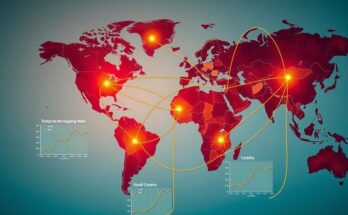On February 28, a nationwide economic blackout is set to occur, spearheaded by The People’s Union USA, urging consumers to halt spending for 24 hours. This movement aims to spotlight economic inequality and hold corporations and policymakers accountable. However, despite the push to abstain from shopping, major retailers like Walmart and Target will remain operational, continuing with their regular business activities.
The goal of this economic standstill is to showcase consumers’ influence over the economy. Participants are encouraged to refrain from purchases at large corporations, both online and in-stores, to emphasise their spending power. This initiative is aimed at addressing critical issues such as economic disparities, labour rights, and corporate accountability, calling for significant changes in business practices.
Individuals are urged to avoid unnecessary purchases, particularly from large chains, while supporting local businesses for essential needs like food and medicine. By collectively pausing spending, participants can illustrate their role within the economy and press for fair wages and responsible corporate behaviour. The effectiveness of this single-day boycott remains to be evaluated, as experts suggest that such short-lived boycotts typically have minimal long-term influence.
John T. Shea, CEO of Momentum Commerce, remarked on the potential impact, stating that “we’re likely to see a small ~10 percent drop but that sales volume will jump the following days” as consumers compensate for deferred purchases. The important takeaway is whether consumers will cancel their planned purchases or merely postpone them.
Alex Beene, a financial literacy educator, commented on the effectiveness of economic blackouts, highlighting that while social media has empowered protests, sustained boycotts against major retailers often fall short due to the economic accessibility they offer compared to local businesses. He observed that these short-term events generally have little influence on the long-term success of larger companies.
Looking ahead, while this blackout is a singular event, additional boycotts are being planned throughout spring, including a weeklong boycott of Amazon starting March 7 and focused protests against corporations like Walmart and Nestlé. Retail giants have yet to publicly respond to this movement, leaving the question of its long-term implications open for discussion.
A nationwide economic blackout is scheduled for February 28, led by The People’s Union USA to protest economic inequality. Organisers call for consumer spending to pause for one day, urging support for local businesses instead. Despite this, major retailers like Walmart and Target will operate as usual. Experts warn that the boycott’s impact may be minimal without sustained action or widespread participation.
The February 28 economic blackout aims to highlight consumer might and advocate for economic equality, pushing for significant changes in corporate practices. Though major retailers like Walmart and Target will remain open, the day’s impact on spending patterns and corporate responses is yet to be determined. As discussions of further coordinated actions unfold, the effectiveness of such movements in driving real change continues to be scrutinised.
Original Source: www.newsweek.com



